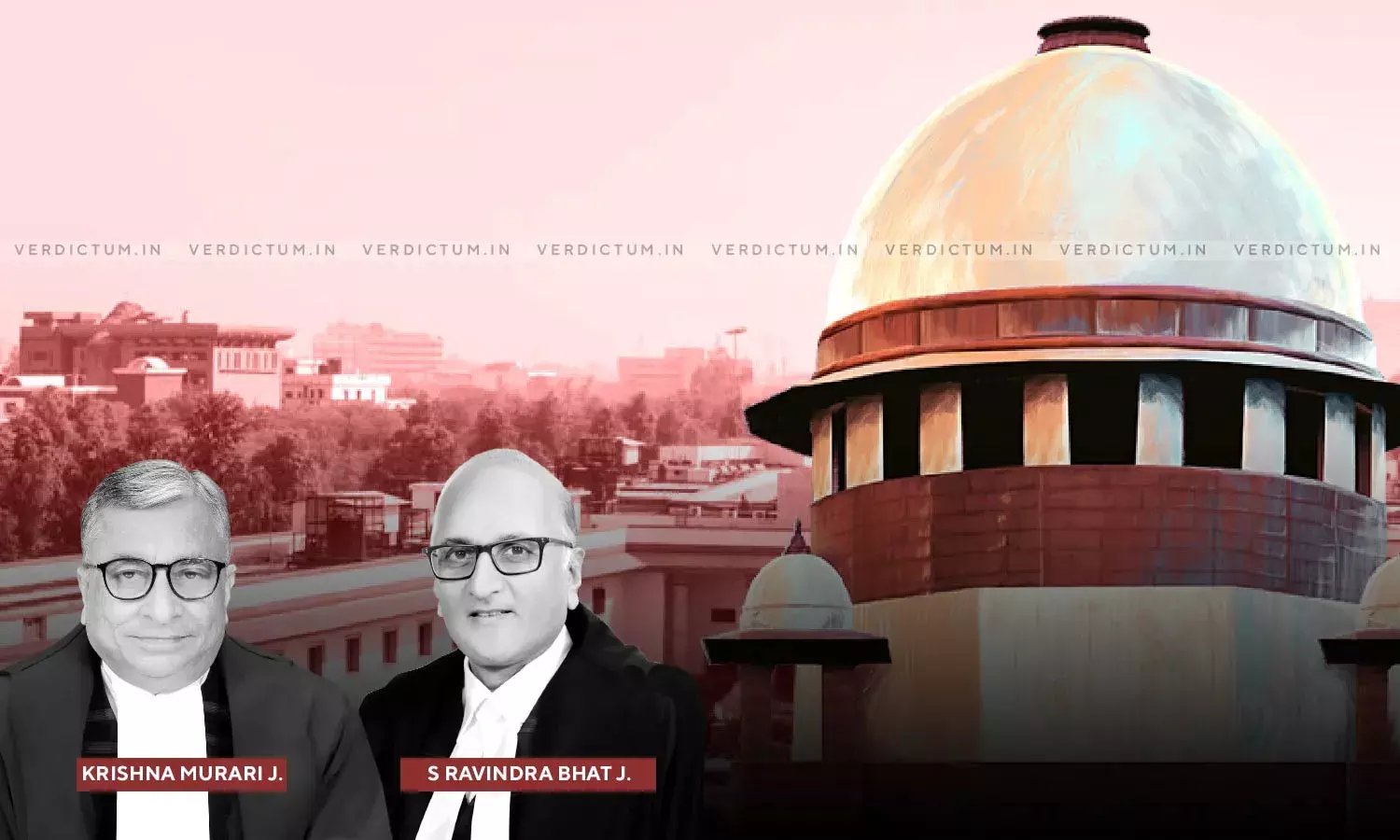Unexplained Inordinate Delay Can Be Considered As Crucial Factor For Quashing Criminal Complaint- Supreme Court

The Supreme Court observed that unexplained inordinate delay can be considered a very crucial factor as grounds for quashing a criminal complaint.
The Bench of Justice Krishna Murari and Justice S. Ravindra Bhat observed that "While inordinate delay in itself may not be ground for quashing of a criminal complaint, in such cases, unexplained inordinate delay of such length must be taken into consideration as a very crucial factor as grounds for quashing a criminal complaint."
The Bench further observed that "While it is true that the quashing of a criminal complaint must be done only in the rarest of rare cases, it is still the duty of the High Court to look into each and every case with great detail to prevent miscarriage of justice. The law is a sacrosanct entity that exists to serve the ends of justice, and the courts, as protectors of the law and servants of the law, must always ensure that frivolous cases do not pervert the sacrosanct nature of the law."
In this case, in the year 2013, a Drug Inspector (respondent) inspected the premises of the appellant and alleged contravention of S.18(c) of the Drugs and Cosmetics Act 1940 read with Rule 65(5)(1)(b) of the Drugs and Cosmetics Rules 1945. A show cause notice was issued after nearly three years and a complaint was filed in 2016, four years after the initiation of inquiry against the appellant.
The appellant then approached the Madras High Court and sought for quashing of the complaint under Section 482 CrPC which was dismissed by the High Court. Aggrieved, the appellant approached the Apex Court.
Advocate K. Krishna Kumar appeared for the appellant and Advocate Joseph Aristotle S. appeared for the respondent.
It was contended by the appellant that the impugned substance was a bulk food substance as per Section 3(1)(j) of the 10 Food Safety and Standards Act, 2006, and the Drug Inspector failed to give evidence indicating that the substance 'Pyridoxal 5 Phosphate' (the Impugned Substance) was a drug only falling under the Drugs and Cosmetics Act, 1940. It was further contended that the Drug Inspector provided no evidence to establish that they broke open and repackaged the items, causing the nature of the Act to become manufacturing.
The Apex Court relied upon the decision of the Apex Court in the case of R.P. Kapur Vs State Of Punjab (1960) 3 SCR 388 wherein it was clarified that the Court can exercise its powers to quash a criminal complaint, provided that the evidence adduced was clearly inconsistent with the accusations made, or no legal evidence had been presented.
Therefore, the Apex Court observed that even though the complaint was made by the Drug Inspector but no evidence had been provided by the officer to sustain the complaint and further expressed that "While this court does not expect a full-blown investigation at the stage of a criminal complaint, however, in such cases where the accused has been subjected to the anxiety of a potential initiation of criminal proceedings for such a length of time, it is only reasonable for the court to expect bare-minimum evidence from the Investigating Authorities."
With regard to four years delay in filing the complaint-
The Apex Court noted that the respondent has not explained the extraordinary delay of more than four years between the initial site inspection, the show cause notice, and the complaint and said that "There has been a gap of more than four years between the initial investigation and the filing of the complaint, and even after lapse of substantial amount of time, no evidence has been provided to sustain the claims in the complaint... In fact, the absence of such an explanation only prompts the Court to infer some sinister motive behind initiating the criminal proceedings."
The Apex Court allowing the appeal observed that "the purpose of filing a complaint and initiating criminal proceedings must exist solely to meet the ends of justice, and the law must not be used as a tool to harass the accused. The law, is meant to exist as a shield to protect the innocent, rather than it being used as a sword to threaten them."
Accordingly, the appeal was allowed and the order of the High Court was set aside.
Cause Title- Hasmukhlal D. Vora & Anr. v. The State of Tamil Nadu
Click here to read/download the Judgment

